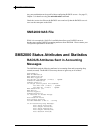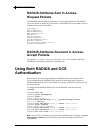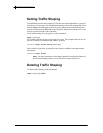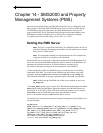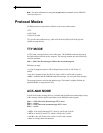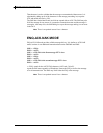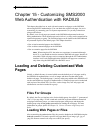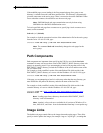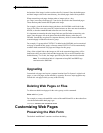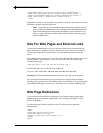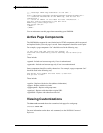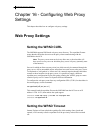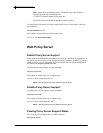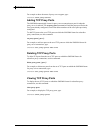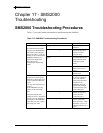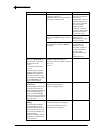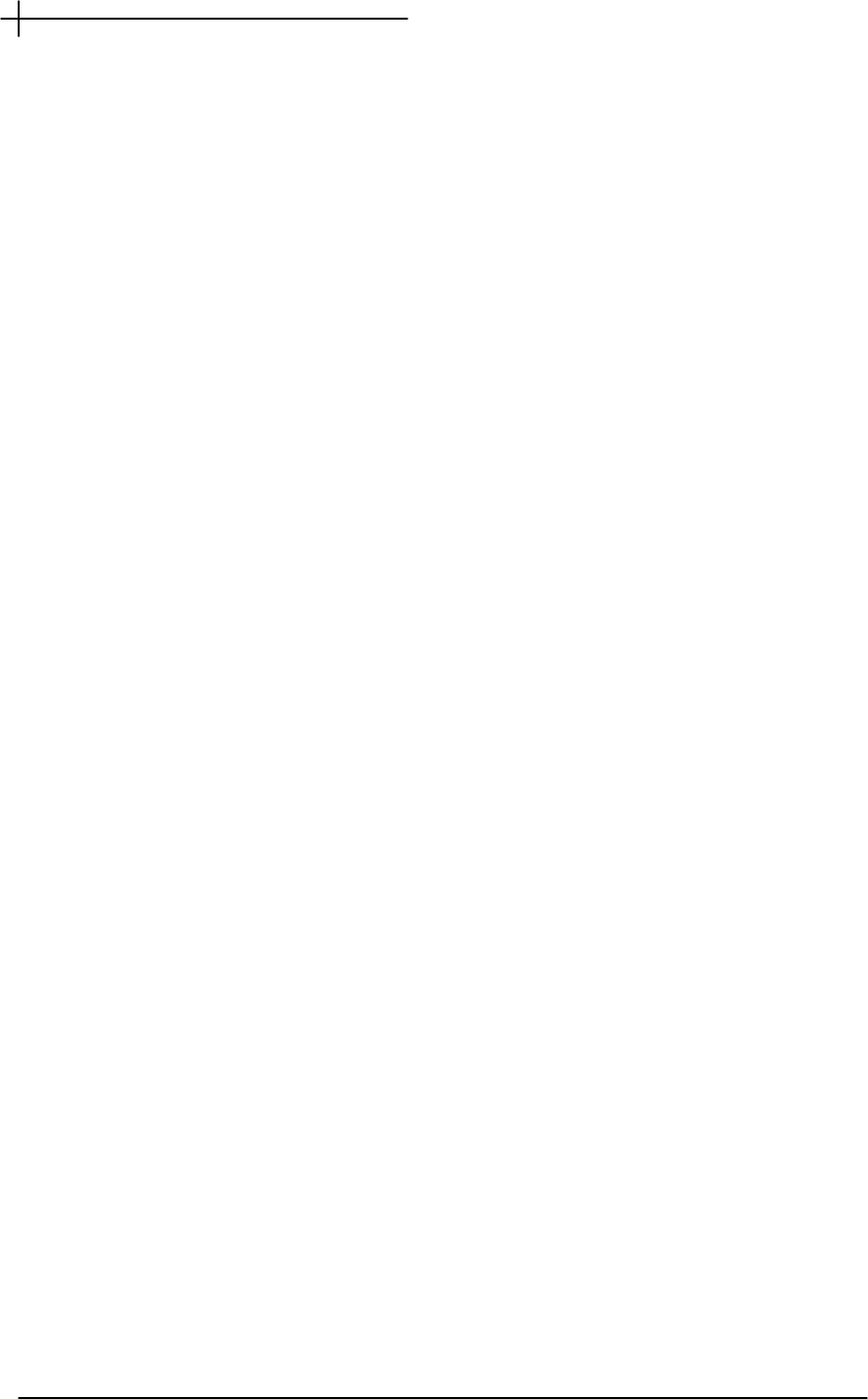
Customizing SMS2000 Web Authentication with RADIUS
TUT Systems, Inc Page 88 of 104 P/N 220-06288-20
the location of the image is relative towhere the file is located. Since the default pages
and their images reside in the same directory, the default pages load with no problem.
When customizing web pages absolute paths to images such as <img
src="http://www.tutsys.com/logo.gif"> can also be specified in the customized pages.
These absolute paths contain the full path to the image.
For example, given the absolute image path above, the SMS2000 would look for the
logo.gif file at the www.tutsys.com site. In that instance, an allow-net must be added to
that site, so that the unauthenticated subscriber can view the image.
It is important to remember how the image links are specified when customizing web
pages, since the pages will not be placed into the default directory when they are
reloaded. Instead they are placed in a separate directory which is created when the first
customized page is loaded for the active group.
For example, if a group called CUSTNAT is added to the SMS2000, and a customized
web page is loaded for this group, a directory named CUSTNAT will be automatically
created to hold customized web pages and images for this group.
If any of the original links to the images are left in the customized pages they will be
broken since they are relative links and the images they link to are still located in the
default directory. To fix this, the images specified by the links must also be reloaded.
Note:
To avoid broken links it is important to keep IMG and HREF tags
consistent on the SMS2000
Upgrading
Customized web pages are kept in a separate location from Tut Systems’ original web
pages, so your web pages are not affected by upgrades. However, major upgrades may
include new web pages which you may wish to modify.
Deleting Web Pages or Files
To delete non-default web pages for the active group, use this command:
delete web local_name
For example, to remove the modified version of the authfile.html file so that subscribers
view the default authfile.html page, type:
sms2000% delete web authfile.html
Customizing Web Pages
Preserving the Web Form
The default “authfile.html” contains a web form including:



